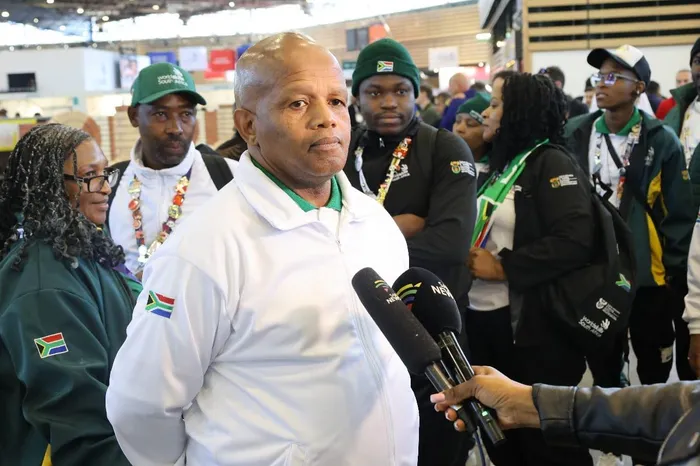Zukile Mvalo defends his role in SETA

Local Government Sector Education and Training Authority (SETA) administrator Zukile Mvalo.
Image: DHET/ Facebook
Local Government Sector Education and Training Authority (SETA) administrator Zukile Mvalo has defended his track record amid mounting criticism of his appointment.
Mvalo, who is the Higher Education and Training Department deputy director-general for skills development, was named as one of the administrators by Higher Education and Training Minister Buti Manamela.
Former Limpopo provincial legislature Deputy Speaker Lehlogonolo Masoga was named as Services SETA administrator, and former manager of Emfuleni Municipality Oupa Nkoane as the Construction SETA administrator.
Their appointments have come under scrutiny, with Manamela opting to ask the Public Service Commission (PSC) to vet the trio after he came under pressure to not only explain their appointments, but to reconsider his decision and withdraw the appointments.
DA spokesperson Karabo Khakhau has openly questioned Mvalo’s credentials, underscoring his eight-year tenure during which all 21 SETAs reported directly to him.
“He has failed at stabilising SETAs for the past eight years, and has no prospect of fixing anything suddenly now,” she said.
In response, Mvalo highlighted the positive achievements within the SETA sector.
He said seven SETAs achieved clean audit outcomes in the 2022/23 financial year.
“Encouragingly, this number increased to 10 SETAs in the 2023/24 period. Over the same period, the number of SETAs receiving unqualified audits stayed relatively stable, five in 2022/23 and four in 2023/24, while qualified audit outcomes continued to decline, indicating an overall improvement in governance and accountability across the system.”
Mvalo added that other entities reporting to the Skills Development Branch also reflected positive results.
“The Quality Council for Trades and Occupations has, for instance, achieved nine consecutive clean audits. At the same time, the National Skills Authority has consistently received clean audit outcomes for the past three years.”
Mvalo also stated that several SETAs have demonstrated a record of consistent clean audits and named at least five.
He emphasised that the SETAs are listed as Schedule 3A Public Entities in terms of the Public Finance Management Act (PFMA), as they have their own Accounting Authority, commonly referred to as boards, supported by a Chief Executive Officer and several employees appointed by the SETAs.
“It is therefore important to note that SETAs are not a branch or division of the Department of Higher Education and Training (DHET).”
Mvalo said the accounting authorities or boards bear full fiduciary responsibilities, as assigned to them under the PFMA, for ensuring sound governance, financial management, and accountability.
“The role of the department remains one of oversight, as legislated.”
Mvalo added that SETAs have facilitated approximately 402 884 workplace-based learning opportunities and that the SETA system has produced over 70 978 artisans over the past four years.
“The last tracer study conducted by the department showed that approximately 81% of artisans transitioned into the labour market upon completion of their apprenticeship programme, funded by the SETAs, at a cost of R206 290 per apprentice enrolled for the duration of the apprenticeship programme.”
He acknowledged that there were challenges in some areas within SETAs that prompted the placement of three under administration.
“It is critical to emphasise that our interventions can only be implemented within the parameters of the legislative framework. When SETAs are placed under administration, we should receive more support, as this measure is a last resort, taken only after all other measures have been exhausted,” he said.
Cape Times
Related Topics: